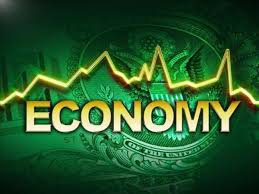Abuja, Aug. 1, 2023: The Federal Government inaugurated a joint planning committee for the 2023 Nigerian Economic Summit on Monday in Abuja.
The summit, the 29th in the series, is expected to hold on Oct. 23 and Oct. 24, also in Abuja.
Permanent Secretary at the Ministry of Budget and National Planning, Mr Nebeolisa Anako inaugurated the planning committee.
He described the summit as veritable platform for the private and public sectors to strengthen Nigeria’s development policies.
“The annual summit provides a veritable platform for dialogue among policy makers, corporate leaders, organised private sector, and civil society organisations and development partners.
“ It also provides the opportunity to strengthen existing symbiotic relationship between the public and private sectors in the overall interest of the country,’’ Anako said.
He added that key outcomes of previous annual national economic summits had played important roles in shaping government’s policies.
“In particular, the summits had in the past contributed to entrenching the culture of development planning in the country.
“Most recently, the public-private partnership helped in the development of the National Development Plan (NDP 2021-2025) and the Nigeria Agenda 2050.
“The contributions of the Nigeria Economic Summit Group in this regard are well appreciated. I am confident that this partnership will continue to endure going forward,’’ Anako said.
He added that arrangements had been concluded to forward the 29th summit’s recommendations and outcomes to the Federal Executive Council in the form of Council Note for information and guidance.
He said members of the joint planning committee for the 29th summit were selected in recognition of their antecedents and knowledge in organising summits and their keen interest in national development.
In his remarks, Chief Executive Officer of the Nigerian Economic Summit Group (NESG), Mr Laoye Jaiyeola, noted that the annual summits had united influential policymakers, private sector leaders, and representatives of civil society.
“As a crucial event for the government and business communities, the summit provides a veritable platform for fostering consensus and mutual understanding of the country’s economic policy trajectory and growth strategies,’’ Jaiyeola said.
He noted that having been around for three decades, national and international policymakers and business leaders had recognised the NESG as the primary forum for facilitating constructive public-private dialogues.
“We acknowledge these advancements; we must also confront the harsh realities that our nation currently faces.
“Weak economic growth, high poverty rates, rising cost of living, increasing unemployment and widening income gaps continue to challenge us.
“These economic headwinds indicate that this is no time for a business-as-usual approach to economic governance,’’ Jaiyeola stressed.
He noted also that Nigeria has vast opportunities given its abundant natural resources and population.
“Concerted efforts and strategic planning are required to harness these resources effectively to maximise national competitive advantages and create opportunities for sustainable economic development,” he said.
Jaiyeola said Nigeria had long been pursuing structural economic transformation, and observed that the nation’s heavy reliance on crude oil as its primary foreign exchange source had resulted in an unbalanced economy.
The oil sector, he said, remained dominant in spite of contributing less than 10 per cent to national output and generating limited employment opportunities.
He commended the President Bola Tinubu-led administration for promptly taking decisive actions on the economy.
He said steps already taken were crucial to diligently address the potential impact of government’s policies on the citizens.
“As the NESG, we reiterate our unwavering commitment to collaborating with government to ensure that policies are implemented with minimal adverse consequences on the people,’’ Jaiyeola said.




